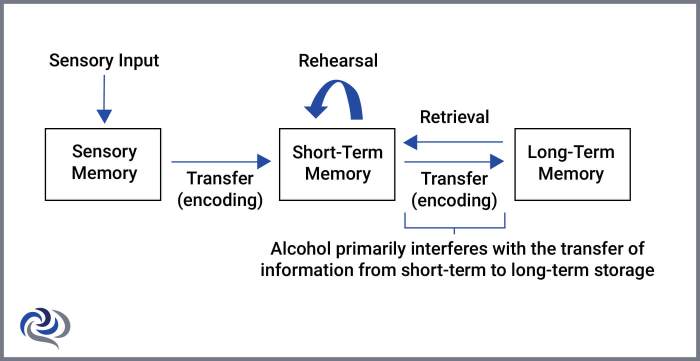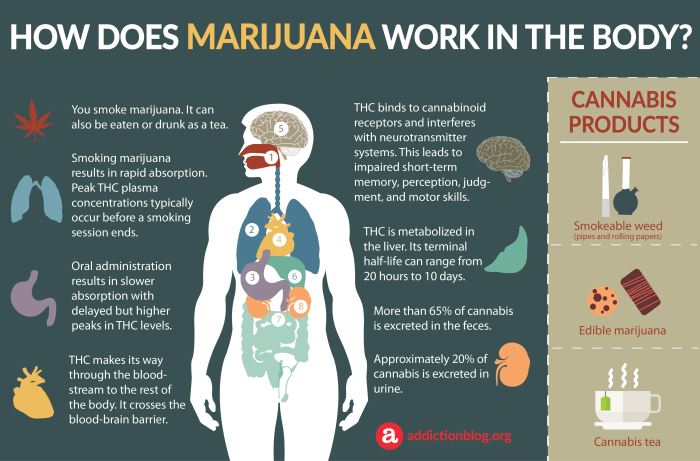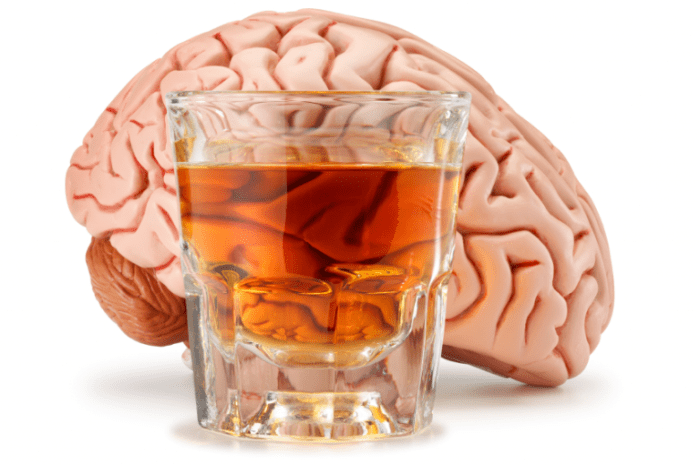Alcohol plus blank affects short-term memory and tracking ability – Exploring the multifaceted effects of alcohol consumption on cognitive functions, this article delves into the intricate interplay between alcohol and short-term memory, as well as tracking ability. Unraveling the mechanisms underlying these impairments, we uncover the consequences and provide practical strategies for mitigation.
Alcohol’s influence on memory consolidation and retrieval processes disrupts our ability to encode and access information effectively. Studies demonstrate impaired recall of names and appointments, highlighting the detrimental effects on episodic memory.
Alcohol’s Impact on Short-Term Memory: Alcohol Plus Blank Affects Short-term Memory And Tracking Ability

Alcohol disrupts memory consolidation, the process by which short-term memories are transferred to long-term storage, and retrieval processes, the ability to access stored memories.
Alcohol affects specific memory tasks, such as recalling names or remembering appointments. For example, studies have shown that individuals who consume alcohol have difficulty remembering words they were presented with shortly after drinking.
Alcohol’s Effects on Tracking Ability
Alcohol impairs visuospatial processing, the ability to perceive and interpret spatial relationships, and attention, the ability to focus on specific stimuli.
Alcohol affects eye-hand coordination and reaction time. For instance, research has found that individuals who consume alcohol have slower reaction times and are less accurate in tracking moving objects.
Statistics indicate a strong correlation between alcohol consumption and impaired tracking ability. For example, a study by the National Highway Traffic Safety Administration (NHTSA) found that drivers with a BAC of 0.08% were more likely to miss or misjudge distances than sober drivers.
Interactive Table: Alcohol’s Impact on Memory and Tracking
| BAC | Memory Performance | Tracking Performance | Potential Consequences |
|---|---|---|---|
| 0.05% | Mild impairment in memory consolidation and retrieval | Slight decrease in eye-hand coordination | Increased risk of forgetting important information |
| 0.10% | Significant impairment in memory consolidation and retrieval | Moderate decrease in eye-hand coordination and reaction time | Increased risk of missing or misjudging distances while driving |
| 0.15% | Severe impairment in memory consolidation and retrieval | Severe decrease in eye-hand coordination and reaction time | Increased risk of accidents and injuries |
Case Studies: Real-World Examples of Alcohol’s Effects, Alcohol plus blank affects short-term memory and tracking ability
Case Study 1:
John, a 25-year-old man, attended a party and consumed a large amount of alcohol. The following day, he struggled to recall the names of people he had met at the party and had difficulty remembering the route he had taken home.
Case Study 2:
Mary, a 30-year-old woman, was driving home from work after having a few drinks. She misjudged the distance between her car and the car in front of her, resulting in a rear-end collision.
Tips for Mitigating Alcohol’s Impact
Responsible Drinking:Limit alcohol consumption to recommended guidelines.
Hydration:Drink plenty of water or non-alcoholic beverages to counteract the dehydrating effects of alcohol.
Adequate Rest:Get sufficient sleep to allow for proper memory consolidation.
Top FAQs
Can moderate alcohol consumption improve cognitive function?
Research suggests that moderate alcohol intake may have beneficial effects on certain cognitive functions in older adults, but excessive consumption consistently impairs cognitive abilities.
How long do the effects of alcohol on memory and tracking ability last?
The duration of these effects varies depending on factors such as the amount of alcohol consumed, individual metabolism, and tolerance levels. Typically, impairments may persist for several hours after alcohol consumption.

